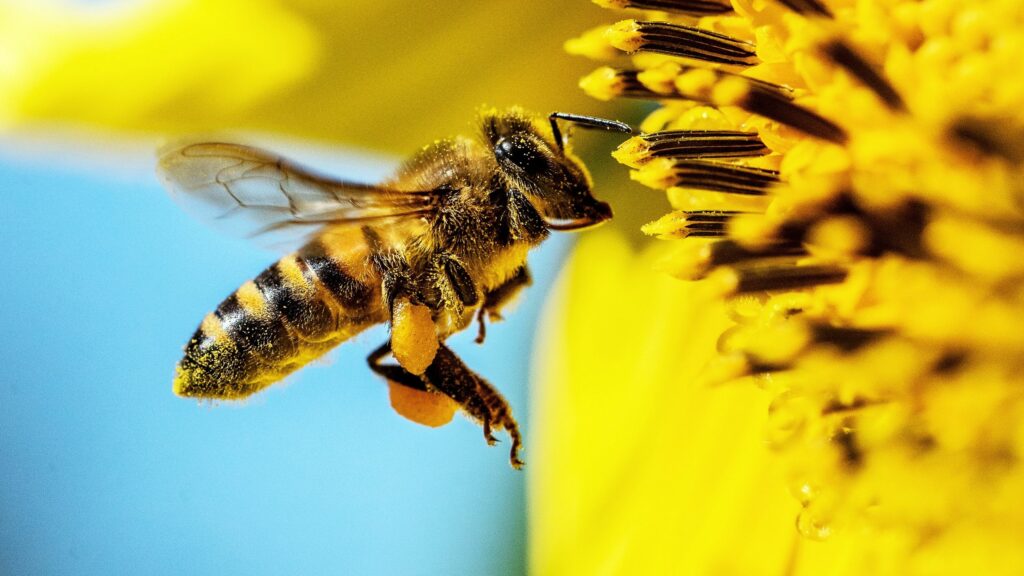Introduction:
Bee venom, also known as apitoxin, is a unique substance produced by honeybees. It has been used for centuries in various traditional medicinal practices and is gaining attention for its potential therapeutic properties. Bee venom contains a complex mixture of bioactive compounds, including peptides, enzymes, and small molecules. In this comprehensive guide, we will explore the uses, benefits, and potential side effects of bee venom.
Uses of Bee Venom:
Bee Venom Therapy:
Bee venom therapy (BVT), also known as apitherapy, is a form of alternative medicine that involves the therapeutic use of bee venom. It has been used for the management of various health conditions, including arthritis, multiple sclerosis, and chronic pain. BVT typically involves injecting or applying bee venom directly to the affected area.
Cosmetic Applications:
Bee venom is increasingly being used in skincare products due to its potential anti-aging and skin-rejuvenating properties. It is believed to stimulate collagen production and improve skin elasticity, leading to a more youthful appearance. Bee venom-based skincare products are available in the form of creams, serums, and masks.
Research and Development:
Bee venom is an active area of research, and scientists are exploring its potential applications in various fields. For instance, studies have investigated its antimicrobial properties, potential anti-cancer effects, and its ability to inhibit inflammation. Furthermore, bee venom has been studied for its potential role in drug delivery systems and as a biopesticide.
Benefits of Bee Venom:
Anti-inflammatory Effects:
Bee venom contains several peptides, including melittin, which has been found to possess potent anti-inflammatory properties. These anti-inflammatory effects may be beneficial for individuals suffering from conditions such as rheumatoid arthritis and other inflammatory disorders.
Pain Relief:
Some studies suggest that bee venom may have analgesic properties, making it effective in managing pain. It is thought to work by blocking pain receptors and inhibiting the release of inflammatory mediators. Bee venom therapy has been used to alleviate pain associated with conditions like osteoarthritis and fibromyalgia.
Skin Health:
Bee venom-based skincare products have gained popularity due to their potential benefits for skin health. The stimulation of collagen and elastin production may help reduce the appearance of fine lines and wrinkles. Additionally, bee venom has antimicrobial properties that may be useful in combating acne and promoting overall skin health.
Immunomodulatory Effects:
Bee venom has been shown to modulate the immune system by affecting the production and release of various immune mediators. This immunomodulatory activity may have therapeutic implications in autoimmune disorders and allergies. However, further research is needed to fully understand the mechanisms and potential applications.
Side Effects and Precautions:
Allergic Reactions:
Bee venom can cause allergic reactions in some individuals, ranging from mild skin irritation to severe anaphylactic reactions. People with known allergies to bee stings or bee products should exercise caution and avoid bee venom therapy or bee venom-based skincare products.
Sensitization:
Prolonged exposure to bee venom can lead to sensitization, where individuals develop an allergic response over time. This may occur in beekeepers or individuals frequently exposed to bee venom. Regular monitoring and proper protective measures are important in such cases.
Interaction with Medications:
Bee venom may interact with certain medications, such as anticoagulants or blood thinners. It is important to consult with a healthcare professional before undergoing bee venom therapy or using bee venom-based products, especially if you are taking any medications.
Safety and Administration:
Bee venom therapy should only be administered by trained professionals who understand the proper protocols and dosage guidelines. Incorrect administration or excessive doses can lead to adverse effects and should be avoided.
Conclusion:
Bee venom holds promise as a potential therapeutic agent with various applications. From bee venom therapy for managing inflammatory conditions to bee venom-based skincare products for skin rejuvenation, its potential benefits are being explored in different fields. However, caution should be exercised due to the risk of allergic reactions and sensitization. As research progresses, a better understanding of bee venom’s mechanisms and safety profiles will contribute to its responsible and effective use in medicine and other domains.
- Delta-10 By Delta Remedys-Exploring the Top Delta-10 Gummies Comprehensive Evaluation - March 27, 2024
- Bee Venom: Uses, Benefits, and Side Effects - July 13, 2023

